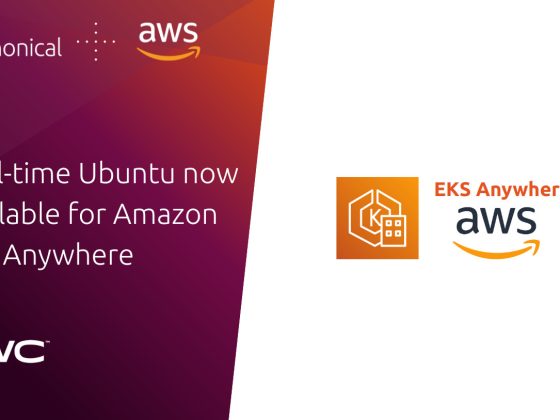At CES 2020, IBM announced the expansion of the IBM Q Network™, which now includes over 100 organizations, across multiple industries, including: Airline, Automotive, Banking and Finance, Energy, Insurance, Materials and Electronics. Anthem, Delta Air Lines, Goldman Sachs, Wells Fargo and Woodside Energy are among the latest organizations to begin to explore practical applications using quantum computing.
In addition to these industry leaders, a number of academic, government research labs and startups have also joined the IBM Q Network, including the Georgia Institute of Technology (Georgia Tech), Stanford University, Los Alamos National Laboratory, AIQTech, Beit, Quantum Machines, Tradeteq and Zurich Instruments.
From our partners:
These organizations join over 200,000 users, who have run hundreds of billions of executions on IBM’s quantum systems and simulators through the IBM Cloud. This has led to the publication of more than 200 third-party research papers on practical quantum applications.
IBM also recently announced the planned installation of the first two IBM Q System One commercial universal quantum computers outside the US – one with Europe’s leading organization for applied research, Fraunhofer-Gesellschaft, in Germany; another with The University of Tokyo. Both are designed to advance country-wide research and provide an education framework program to engage universities, industry, and government to grow a quantum computing community and foster new economic opportunities.
As part of the network, these organizations now have access to IBM’s quantum expertise and resources, open-source Qiskit software and developer tools, as well as cloud-based access to the IBM Quantum Computation Center, which now includes 15 of the most-advanced quantum computers commercially available to explore practical applications for business and science, including a 53-qubit system – the most in the industry.
“We are entering the quantum age, and IBM is working with our partners to apply this new technology in a way that can solve major business and societal problems,” said Dario Gil, Director of IBM Research. “Quantum computing will have a profound impact on key issues like finding new materials to capture carbon in the global fight against climate change, as well as the discovery of new chemistries that might power more energy-efficient batteries.”
Commercial organizations joining the IBM Q Network include:
- Anthem, Inc.: Anthem is a leading health benefits company and will be expanding its research and development efforts to explore how quantum computing may further enhance the consumer healthcare experience. Anthem brings its expertise in working with healthcare data to the Q Network. Quantum computing has the potential to analyze vast amounts of data inaccessible to classical computing, while also enhancing privacy and security. This technology also has the potential to help individuals lead healthier lives in a number of ways, such as helping in the development of more accurate and personalized treatment options and improving the prediction of health conditions.
- Delta Air Lines: The global airline has agreed to join the IBM Q Hub at North Carolina State University. They are the first airline to embark on a multi-year collaborative effort with IBM to explore the potential capabilities of quantum computing to transform experiences for customers and employees and address challenges across the day of travel.
Academic institutions and government research labs joining the IBM Q Network include:
- Georgia Tech: The university has agreed to join the IBM Q Hub at the Oak Ridge National Laboratory to advance the fundamental research and use of quantum computing in building software infrastructure to make it easier to operate quantum machines, and developing specialized error mitigation techniques. Access to IBM commercial quantum systems will also allow Georgia Tech researchers to better understand the error patterns in existing quantum computers, which can help with developing the architecture for future machines.
- Los Alamos National Laboratory: Joining as an IBM Q Hub will greatly help the Los Alamos National Laboratory research efforts in several directions, including developing and testing near-term quantum algorithms and formulating strategies for mitigating errors on quantum computers. The 53-qubit system will also allow Los Alamos to benchmark the abilities to perform quantum simulations on real quantum hardware and perhaps to push beyond the limits of classical computing. Finally, the IBM Q Network will be a tremendous educational tool, giving students a rare opportunity to develop innovative research projects in the Los Alamos Quantum Computing Summer School.
Startups joining the IBM Q Network include:
- AIQTECH INC: Based in Toronto, AiQ is an artificial intelligence software enterprise set to unleash the power of AI to “learn” complex systems. In particular, it provides a platform to characterize and optimize quantum hardware, algorithms, and simulations in real-time. This collaboration with the IBM Q Network provides a unique opportunity to expand AiQ’s software backends from quantum simulation to quantum control and contribute to the advancement of the field.
- BEIT: The Kraków, Poland-based startup is hardware-agnostic, specializing in solving hard problems with quantum-inspired hardware while preparing the solutions for the proper quantum hardware when it becomes available. Their goal is to attain super-polynomial speedups over classical counterparts with quantum algorithms via exploitation of problem structure.
- Quantum Machines: QM is a provider of control and operating systems for quantum computers, with customers among the leading players in the field, including multinational corporations, academic institutions, start-ups and national research labs. As part of the IBM and QM collaboration, a compiler between IBM’s quantum computing programming languages, and those of QM is being developed to be offered to QM’s customers. Such development will lead to the increased adoption of IBM’s open-sourced programming languages across the industry.
- Tradeteq: Tradeteq is the first electronic trading platform for the institutional trade finance market. With teams in London, Singapore, and Vietnam, Tradeteq is using AI for private credit risk assessment and portfolio optimization. Tradeteq is collaborating with leading universities around the globe to build the next generation of machine learning and optimization models and is advancing the use of quantum machine learning to build models for better credit, investment and portfolio decisions.
- Zurich Instruments: Zurich Instruments is a test and measurement company based in Zurich, Switzerland, with the mission to progress science and help build the quantum computer. It is developing state-of-the-art control electronics for quantum computers, and now offers the first commercial Quantum Computing Control System linking high-level quantum algorithms with the physical qubit implementation. It brings together the instrumentation required for quantum computers from a few qubits to 100 qubits. They will work on the integration of IBM quantum technology with the companies’ own electronics to ensure reliable control and measurement of a quantum device while providing a clean software interface to the next higher level in the stack.
For more information about the IBM Q Network, as well as a full list of all partners, members, and hubs, visit https://www.ibm.com/quantum-computing/network/overview.
For enquiries, product placements, sponsorships, and collaborations, connect with us at [email protected]. We'd love to hear from you!
Our humans need coffee too! Your support is highly appreciated, thank you!








